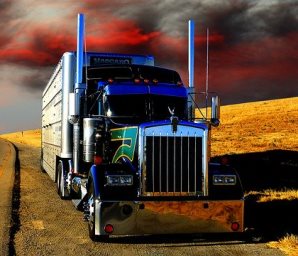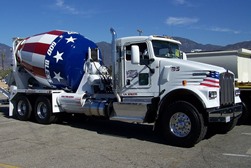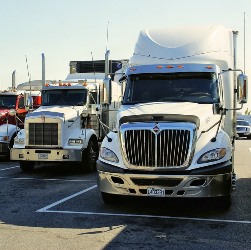How to Find the Right CDL Training Classes near Denver Colorado
 Congrats on your decision to become a trucker and enroll in a trucking school near Denver CO. Maybe it has always been your ambition to hit the open road while driving a big ole tractor trailer. Or perhaps you have done some research and have found that an occupation as a truck driver offers excellent income and flexible job prospects. Whatever your reason is, it's essential to receive the appropriate training by choosing the right CDL school in your area. When evaluating your options, there are certain variables that you'll need to think about before making your ultimate selection. Location will no doubt be important, especially if you need to commute from your Denver home. The expense will also be important, but picking a school based only on price is not the best way to make sure you'll obtain the appropriate education. Don't forget, your goal is to learn the knowledge and skills that will allow you to pass the CDL examinations and become a professional truck driver. So keeping that objective in mind, just how do you choose a truck driving school? The answer to that question is what we are going to discuss in the balance of this article. But first, we are going to review a little bit about which CDL license you will eventually need.
Congrats on your decision to become a trucker and enroll in a trucking school near Denver CO. Maybe it has always been your ambition to hit the open road while driving a big ole tractor trailer. Or perhaps you have done some research and have found that an occupation as a truck driver offers excellent income and flexible job prospects. Whatever your reason is, it's essential to receive the appropriate training by choosing the right CDL school in your area. When evaluating your options, there are certain variables that you'll need to think about before making your ultimate selection. Location will no doubt be important, especially if you need to commute from your Denver home. The expense will also be important, but picking a school based only on price is not the best way to make sure you'll obtain the appropriate education. Don't forget, your goal is to learn the knowledge and skills that will allow you to pass the CDL examinations and become a professional truck driver. So keeping that objective in mind, just how do you choose a truck driving school? The answer to that question is what we are going to discuss in the balance of this article. But first, we are going to review a little bit about which CDL license you will eventually need.
Which Commercial Drivers License Is Required?

To operate commercial vehicles lawfully within the United States and Denver CO, a driver needs to obtain a CDL (Commercial Driver's License). The three classes of licenses that a person can qualify for are Class A, Class B and Class C. Since the topic of this article is how to choose a truck driver school, we will focus on Class A and Class B licenses. What differentiates each class of CDL is the kind of vehicle that the driver can operate as well as the GVWR (Gross Vehicle Weight Rating) or GCWR (Gross Combination Weight Rating). Below are brief explanations for the two classes.
Class A CDL. A Class A CDL is required to operate any vehicle that has a GCWR of more than 26,000 lbs., including a towed vehicle of greater than 10,000 lbs. A few of the vehicles that operators may be able to drive with Class A licenses are:
- Interstate or Intrastate Tractor Trailers
- Trucks with Double or Triple Trailers
- Tanker Trucks
- Livestock Carriers
- Class B and Class C Vehicles
Class B CDL. A Class B Commercial Drivers License is required to drive single vehicles having a GVWR of more than 26,000 lbs., or a GCWR of greater than 26,000 lbs. including a towed vehicle weighing up to 10,000 lbs. Some of the vehicles that operators may be qualified to drive with Class B licenses are:
- Tractor Trailers
- Dump Trucks
- Cement Mixers
- Large Buses
- Class C Vehicles
Both Class A and Class B Commercial Drivers Licenses may also need endorsements to drive certain kinds of vehicles, for instance school or passenger buses. And a Class A license holder, with the proper required endorsements, can drive any vehicle that a Class B licensee is authorized to operate.
How to Research a Trucker School

When you have determined which Commercial Drivers License you wish to pursue, you can begin the process of researching the Denver CO truck driver schools that you are considering. As earlier discussed, cost and location will no doubt be your primary concerns. But it can't be emphasized enough that they must not be your sole concerns. Other factors, for example the reputations of the schools or the experience of the instructors are similarly or even more important. So following are several more factors that you should research while carrying out your due diligence prior to choosing, and especially paying for, your truck driving training.
Are the Schools Certified or Accredited ? Very few truck driver schools in the Denver CO area are accredited due to the demanding process and expense to the schools. However, certification is more prevalent and is offered by the Professional Truck Driver Institute (PTDI). A school is not obligated to become certified, but there are a number of advantages. Potential students recognize that the training will be of the highest caliber, and that they will get lots of driving time. For example, PTDI mandates 44 hours of real driving time, not simulations or ride-alongs. So if a school's program is certified (the program, not the school is certified), students know that the curriculum and training will meet the very high standards set by PTDI.
How Long in Business? One indicator to help assess the quality of a truck driving school is how long it has been in operation. A negatively reviewed or a fly by night school typically will not be in business very long, so longevity is a plus. Having said that, even the best of Denver CO schools had to begin from their first day of training, so use it as one of multiple qualifications. You can also learn what the school's history is concerning successful licensing and employment of its graduates. If a school won't provide those numbers, search elsewhere. The schools should additionally have relationships with local and national trucking companies. Having a large number of contacts not only points to a superior reputation within the trade, but also boosts their job assistance program for graduates. It also wouldn't be a bad idea to get in touch with the Colorado licensing department to confirm that the CDL trucker schools you are reviewing are in good standing.
How Effective is the Training? At a minimum, the schools should be licensed in Colorado and hire teachers that are trained and experienced. We will cover more about the instructors in the next section. In addition, the student to instructor ratio should be no greater than 4 to 1. If it's any greater, then students will not be obtaining the individual instruction they will need. This is especially true concerning the one-on-one instruction for behind the wheel training. And watch out for any school that professes it can teach you to drive trucks in a relatively short period of time. Learning to be an operator and to drive a tractor trailer professionally takes time. Most Denver CO schools provide training courses that range from three weeks to as long as two months, depending on the license class or kind of vehicle.
How Good are the Trainers? As already mentioned, it's essential that the instructors are trained to teach driving methods and experienced as both drivers and instructors. Although several states have minimum driving time criteria to qualify as a teacher, the more successful driving experience a teacher has the better. It's also crucial that the instructors keep current with industry advancements or any new laws or changes in regulations. Assessing teachers may be a bit more intuitive than other standards, and possibly the ideal approach is to visit the school and talk to the teachers face to face. You can also speak with some of the students going through the training and find out if they are satisfied with the quality of instruction and the teacher's qualification to train them.
Enough Driving Time? Most importantly, an excellent truck driver school will provide sufficient driving time to its students. After all, isn't that what it's all about? Driving time is the actual time spent behind the wheel driving a truck. While the use of ride-a-longs with other students and simulators are important training tools, they are no alternative for actual driving. The more instruction that a student receives behind the wheel, the better driver he or she will become. Although driving time differs among schools, a good standard is 32 hours at a minimum. If the school is PTDI certified, it will furnish a minimum of 44 hours of driving time. Get in touch with the Denver CO schools you are looking at and ask how much driving time they furnish.
Are they Captive or Independent ? You can get discounted or even free training from some truck driving schools if you enter into an agreement to be a driver for a specified carrier for a defined time period. This is what's known as contract training, and the schools that provide it are called captives. So rather than maintaining associations with numerous trucking lines that they can place their graduates with, captives only refer to one company. The tradeoff is receiving free or less expensive training by giving up the flexibility to initially be a driver wherever you have an opportunity. Clearly contract training has the potential to restrict your income prospects when beginning your new career. But for some it may be the ideal way to receive affordable training. Just make sure to inquire if the Denver CO schools you are considering are independent or captive so that you can make an informed decision.
Is there Onsite CDL Testing? There are a number of states that will allow 3rd party CDL testing onsite of truck driver schools for its students. If onsite testing is available in Colorado, ask if the schools you are reviewing are DMV certified to provide it. One advantage is that it is more accommodating than battling with graduates from other schools for test times at Colorado testing centers. It is also an indicator that the DMV considers the authorized schools to be of a higher quality.
Are the Class Times Accessible? As earlier noted, truck driving training is just 1 to 2 months long. With such a brief term, it's imperative that the Denver CO school you choose provides flexibility for both the scheduling of classes and the curriculum. As an example, if you're having a hard time learning a certain driving maneuver, then the instructor should be prepared to spend more time with you until you have it mastered. And if you're still employed while attending training, then the class scheduling must be flexible enough to accommodate working hours or other commitments.
Is Job Placement Provided? Once you have received your commercial driver's license after graduating from truck driver school, you will be keen to start your new profession. Make sure that the schools you are looking at have job placement programs. Ask what their job placement ratio is and what average salary their grads start at. Also, ask which local and national trucking companies their graduates are referred to for hiring. If a school has a lower job placement rate or not many Denver CO employers recruiting their graduates, it may be a clue to search elsewhere.
Is Financial Assistance Offered? Truck driver schools are similar to colleges and other Denver CO area technical or vocational schools when it comes to loans and other forms of financial aid being offered. Ask if the schools you are examining have a financial assistance department, or at least someone who can help you understand the options and forms that must be completed.
Find Out More About Denver CDL Training Schools
Choose the Best Denver CO CDL Training
Selecting the right truck driver school is an essential first step to launching your new profession as a local or long distance truck driver. The skills taught at school will be those that mold a new career behind the wheel. There are several options available and understanding them is critical if you are going to succeed as an operator. But first and foremost, you must receive the necessary training in order to drive a big commercial vehicle in a professional and safe fashion. If you are short on cash or financing, you might want to look into a captive school. You will pay a lower or in some cases no tuition by agreeing to drive for their contracted carrier. Or you can choose an independent CDL school and have the the freedom to drive for the trucking company of your choice, or one of several affiliated with the school. It's your decision. But no matter how you obtain your training, you will soon be part of an industry that helps America move as a professional truck driver in Denver CO.
